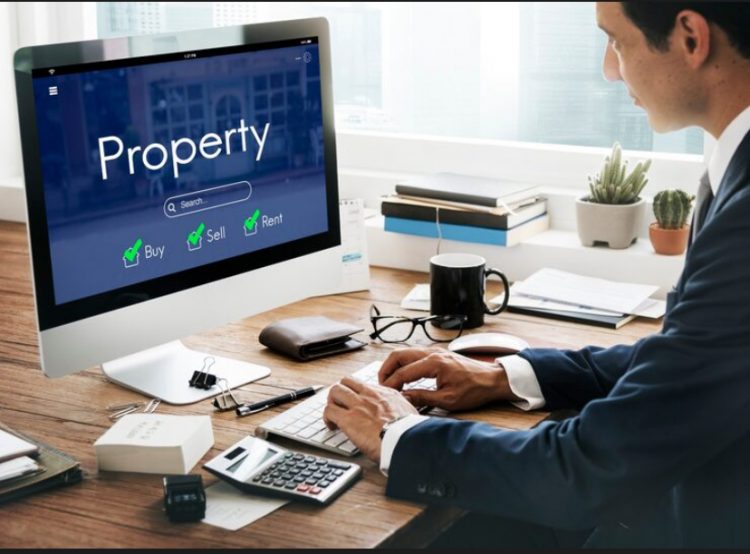Real estate is no longer just about buying and selling property it’s about building lasting relationships, managing client data effectively, and staying ahead in a competitive market. Clients today expect quick responses, personalized guidance, and smooth communicationthroughout their buying or selling journey. That’s why many agents and brokers now rely on Real Estate CRM Software (Customer Relationship Management) to streamline their work.
Why Real Estate Professionals Need CRM Software
- Organizes and stores client details securely.
- Tracks leads and automates follow-ups.
- Improves communication with buyers and sellers.
- Provides insights through analytics and reports.
- Saves time by automating repetitive tasks.
Step 1: Understand What Real Estate CRM Software Is
A Real Estate CRM is more than just a database. It helps you manage leads, nurture prospects, and close deals faster. It’s like having a personal assistant who never forgets a task. From scheduling follow-up calls to sending reminders for property visits, a CRM ensures every step of the client journey is tracked and handled on time.
Step 2: Identify Your Needs Before Choosing
Not all CRMs are created equal. Before investing, ask yourself:
- How many clients do I handle monthly?
- Do I need mobile app access?
- Should it integrate with WhatsApp, email, or property portals?
- Am I looking for automation (follow-up reminders, email campaigns)?
- What’s my budget?
Step 3: Must-Have Features in Real Estate CRM
Here are the essential features every realtor should look for:
- Lead Management – Track, score, and nurture leads.
- Automation Tools – Set reminders, schedule emails, and manage follow-ups.
- Mobile Accessibility – Work from anywhere.
- Custom Reports – Get insights into sales performance.
- Integration Options – Connect with marketing tools, portals, and social media.
- User-Friendly Interface – Easy to learn and use.
Step 4: Compare Options Before You Decide
Here’s a quick comparison of features you may find useful when evaluating software:
Feature
Why It Matters
Example Benefit
Lead Tracking
Keeps every lead in one place
No missed opportunities
Automation
Reduces manual work
Saves hours daily
Mobile App
Access anywhere
Quick client response
Integration (Email/Portals)
Smooth workflow
No duplicate data entry
Reporting & Analytics
Helps in decision-making
Boosts sales strategy
Step 5: Budget vs Value
A common mistake beginners make is focusing only on price. While budget is important, choosing the cheapest option often means sacrificing the features you actually need. Instead, think about value for money. A slightly higher investment in the rightReal Estate CRM Software may give you tools like automation, mobile access, and analytics that save hours every week, making it well worth it in the long run.
Tip: Start with a free trial if possible, and then upgrade once you’re confident.
Step 6: Check User Reviews and Support
Always check:
- What other real estate professionals say about the CRM.
- How responsive the customer support team is.
- Whether tutorials, FAQs, or training are provided.
A CRM is only helpful if you and your team can actually use it smoothly. That’s why ease of use and proper training should be top prioritieswhen making your choice.
Step 7: Think Long-Term
Your business will grow, and so will your CRM needs. Choose software that is scalable, something that grows with you. A scalable CRM allows you to add more users, integrate new tools, and handle larger volumes of data without disruptions. This ensures you won’t outgrow the system too quickly and can continue to deliver seamless client experiences as your real estate business expands.
Key Benefits of Using Real Estate CRM Software
- Better organization = More sales.
- Improved client satisfaction.
- Easy tracking of every property deal.
- Boosts productivity by cutting down manual tasks.
- Gives realtors an edge in competitive markets.
Key Takeaways
- Define your needs before choosing a CRM.
- Look for features like lead management, automation, and integration.
- Compare options carefully with budget vs. value in mind.
- Read reviews and check customer support quality.
- Ensure the CRM is scalable for future growth.
Conclusion
Choosing the right CRM doesn’t have to be overwhelming. This article was designed as A Beginner’s Guide to Choosing the Right Real Estate CRM Software, helping you break down the process step by step. By focusing on features that truly matter, like ease of use, scalability, and automation, you can confidently pick a system that matches your current needs while preparing you for future growth.









